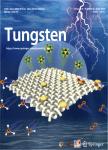The intrinsic strength prediction by machine learning for refractory high entropy alloys
作者机构:Kazuo Inamori School of EngineeringAlfred UniversityAlfredNY14802USA
出 版 物:《Tungsten》 (钨科技(英文))
年 卷 期:2023年第5卷第4期
页 面:531-538页
核心收录:
学科分类:12[管理学] 1201[管理学-管理科学与工程(可授管理学、工学学位)] 081104[工学-模式识别与智能系统] 08[工学] 080502[工学-材料学] 0805[工学-材料科学与工程(可授工学、理学学位)] 0835[工学-软件工程] 0811[工学-控制科学与工程] 0812[工学-计算机科学与技术(可授工学、理学学位)]
基 金:supported by the Faculty Startup Fund in the New York State College of Ceramics at Alfred University
主 题:Refractory high entropy alloys Solid solution strengthening Machine learning Lattice distortion Heat of fusion
摘 要:Herein,we trained machine learning(ML)model to quickly and accurately conduct the strength prediction of refractory high entropy alloys(RHEAs)*** Boosting(GB)regression model shows an outstanding performance against other ML *** addition,the heat of fusion and atomic size difference is shown to be paramount to the strength of the high entropy alloys(HEAs)*** addition,we discussed the contribution of each feature to the solid solution strengthening(SSS)of HE *** excellent predictive accuracy shows that the GB model can be efficient and reliable for the design of RHEAs with desired strength.



